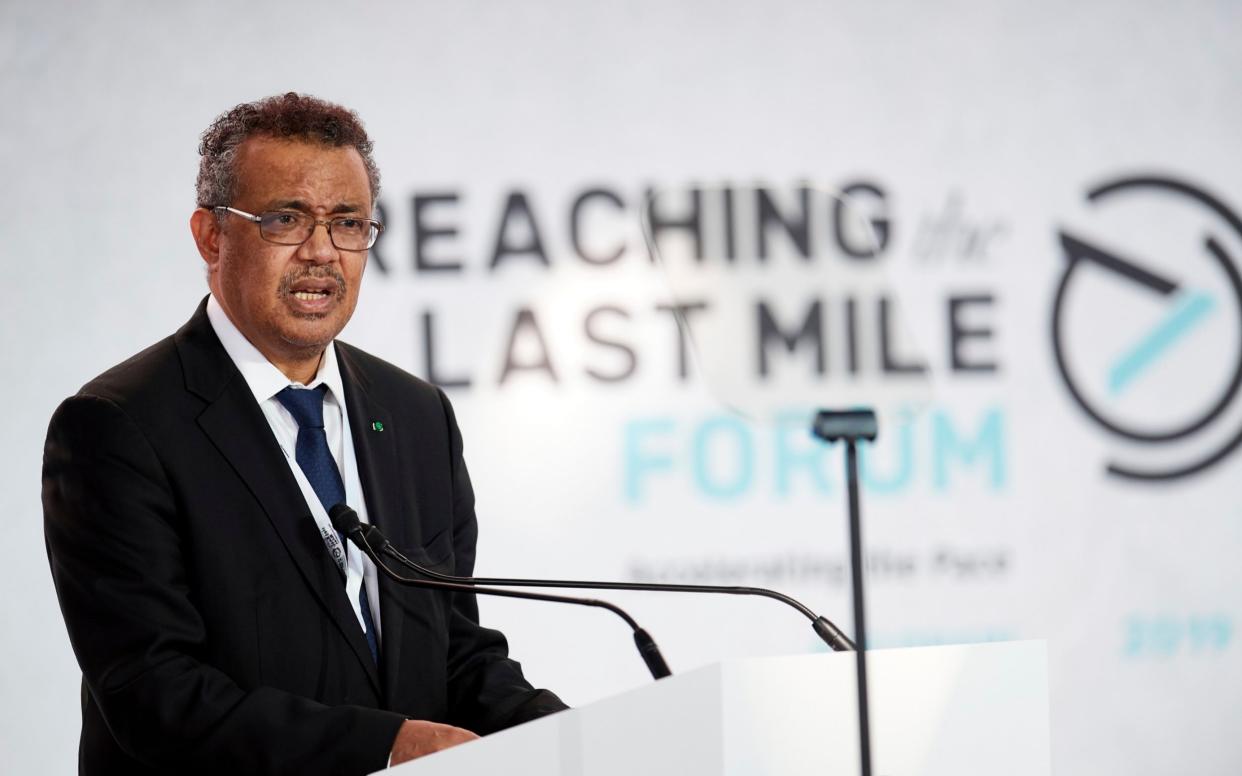'Vaccine nationalism' will not help fight the virus, says WHO chief


Richer countries must make a political commitment to ensure that any Covid-19 vaccine is distributed fairly across the world, the head of the World Health Organization has urged.
Speaking on Thursday, WHO director general Dr Tedros Adhanom Ghebreyesus said there should be a “global consensus” to make any vaccine a global health product, and that to do so is a “political choice”.
There are currently more than 140 vaccines in development around the world, with several promising candidates in human clinical trials. But there is concern among experts and campaigners that initial demand for the vaccine could surpass manufacturing capacity, and that some countries could be priced out of the market.
“Vaccine nationalism is not good, it will not help us,” said Dr Tedros. “When we say it should be a public good, it’s not sharing for the sake of sharing, it’s only because it has advantages. For the world to recover faster it has to recover together because it’s a globalised world.”
Just part of the world or a few countries cannot be a “safe haven” and recover alone, he said, and they should “recover with the rest of the world”.

“Sharing vaccines or sharing other tools actually helps the world recover together, and the economic recovery can be faster and the damage from Covid-19 could be less.
“So when those countries who have the means and funding commit to this, they’re not giving charity to others, they’re doing it for themselves. When the rest of the world recovers and opens up they also benefit,” he said, adding that there should be a “political commitment”.
Dr Tedros also repeatedly stressed the importance of global cooperation in combating the pandemic, as well as the need for investment in global health security.
“The world spends billions every year preparing for potential terrorist attacks but we have learnt lessons the hard way that unless we invest in pandemic preparedness and the climate crisis we leave ourselves open to enormous harm,” he told the conference.
“While health has often been viewed as a cost, the first coronavirus pandemic in history has shown how critical health investment is to national security.”
Asked about the United States’ decision to break ties with the WHO, Dr Tedros said he hoped that the country will reconsider its position. He added it wasn't the financial loss that was the issue but rather the “void” in leadership that will be left with a US departure.
“The problem is not about the money, it’s not the finance that’s the issue. It’s actually the relationship with the US that’s more important and its leadership,” he said. “I’ve said it many times: you cannot defeat this dangerous enemy in a divided world. We need a united world, and a united world needs cooperation and solidarity among its major powers.”
“If there are issues about WHO or the UN system at large, we’re very open for any evaluation or assessment and the truth can be known and this can be down from inside without leaving the organisation.”
Protect yourself and your family by learning more about Global Health Security

 Yahoo News
Yahoo News 
